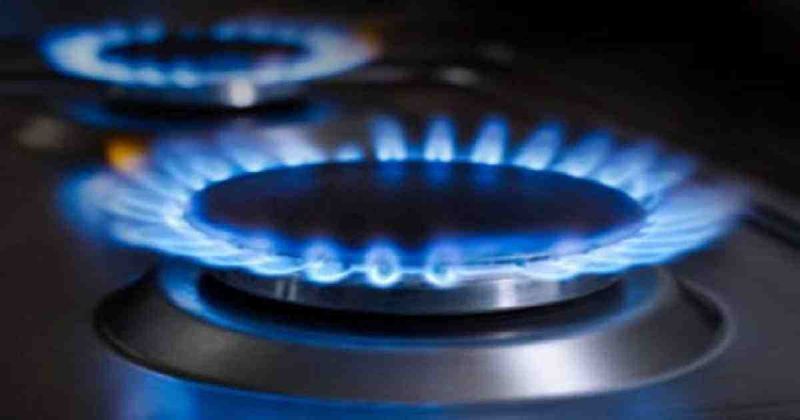- Chief Adviser Dr Yunus pays homage to martyred intellectuals |
- Martyred Intellectuals Day: A Nation’s Loss and Resolve |
- EC seeks enhanced security for CEC, ECs, election officials |
- Humanoid robots take center stage at Silicon Valley summit, but skepticism remains |
- ‘Unhealthy’ air quality was recorded in Dhaka on Sunday |
System loss reduction can solve energy crisis without hiking price

Gas for cooking
Jehangir Hussain
Reducing gas sector’s system loss by five per cent, the government would be able to solve the crisis in energy sector without increasing price or even without the proposed "Bangladesh Energy Regulatory Commission (amendment) Ordinance, 2022" Bill, Bangladesh Energy Regulatory Commission (BERC) Member Md Maqbul-E-Elahi Chowdhury told a parliamentary Standing Committee meeting on Tuesday.
Parliament’s Standing Committee on Power, Energy and Mineral Resources Ministry is taking opinion of different stakeholders for presenting its final report on the Bill before it was presented in Parliament.
Maqbul said that the country was facing gas shortage of only 100 mmcfd.
And the small shortage was met by importing Liquefied Natural Gas (LNG), he said.
“This small shortage snatched our peace and made the country’s power generation unstable,” he said giving his opinion to the parliamentary watchdog.
By stopping pilferage of gas, the nation could solve fuel price hike and inflation, said aid, while giving his opinion about the "Bangladesh Energy Regulatory Commission (amendment) Ordinance, 2022".
BERC was established as quasi judicial body under the Bangladesh Energy Regulatory Act 2003.
The law was amended thrice in the past. But the proposed bill seeks to empower the government to raise, power, energy and petroleum products’ prices bypassing public hearings and the BERC.
On January 5, Law Minister Anisul Huq placed the "Bangladesh Energy Regulatory Commission (amendment) Ordinance, 2022" in Parliament.
The ordinance was proclaimed by President Abdul Hamid on December 1, and on the same day, the law ministry issued a gazette announcing the decision to amend the law.
Nasrul Hamid, state minister for power, energy and mineral resources, placed the bill in Parliament, which was later sent to the standing committee.
The standing Committee has been asked to submit its report within five working days.
Maqbul-E-Elahi Chowdhury told the meeting that during 1993- 1997 power sector’s system loss was around 47 per cent, which has been reduced to five to seven per cent, as the Power Division brought down misuse and pilferage.
He said that the energy sector’s system loss has been reduced to 12 per cent from 27 per cent that persisted for last 20 years.
He said that no previous government could stop pilferage from the sector.
He said that pilferage had made the system unstable.
He said that Bangladesh imports 100 mmcf of gas from spot market besides importing LNG under long term deal under fixed price.
He said out of frustration that the crisis would persist unless steps were taken to stop corruption.
Following amendment of the Bangladesh Energy Regulatory Commission (BERC) Act 2003, the power ministry will be able to change gas and electricity tariffs bypassing any hearing.
Previously, it could revise the prices of fuel oil including diesel, octane, kerosene and petrol without any hearing.
BERC used to adjust gas and electricity prices after holding public hearings.
Maqbul told the meeting that the government could also take an initiative to extract more gas from different gas fields and also go for increasing gas output.
The other BERC members favoured the Bill.
The power division so far increased the price of electricity at the consumers' end by five per cent and hiked gas tariffs for industries and power plants by 14.5 per cent to 178.8 per cent.
It has plans to increase power tariff soon as gas tariff for the power sector has been increased.
Under the existing BERC Act, if the government wants to adjust the power tariff or price of natural gas, the relevant state-owned body has to place a proposal to the regulator and then the BERC holds a public hearing to listen to the opinions of the stakeholders on the issue before taking any decision.
After holding public hearing, the BERC announces its decision within 90 days on price adjustments.
But if the Bill is passed by Parliament and the President gives assent, the government would be able to change electricity, gas and petroleum products’ tariffs by passing the BERC and public hearings.
The Power Division said that nagging crisis in the energy and power sectors prompted the government to assume powers to adjust tariffs according to the need.
Consumers Association of Bangladesh (CAB) vice chairman Prof ASM Shamsul Alam termed the government’s move as destructive to the semi-judicial powers of the BERC.
jehangirh01@gmail.com

